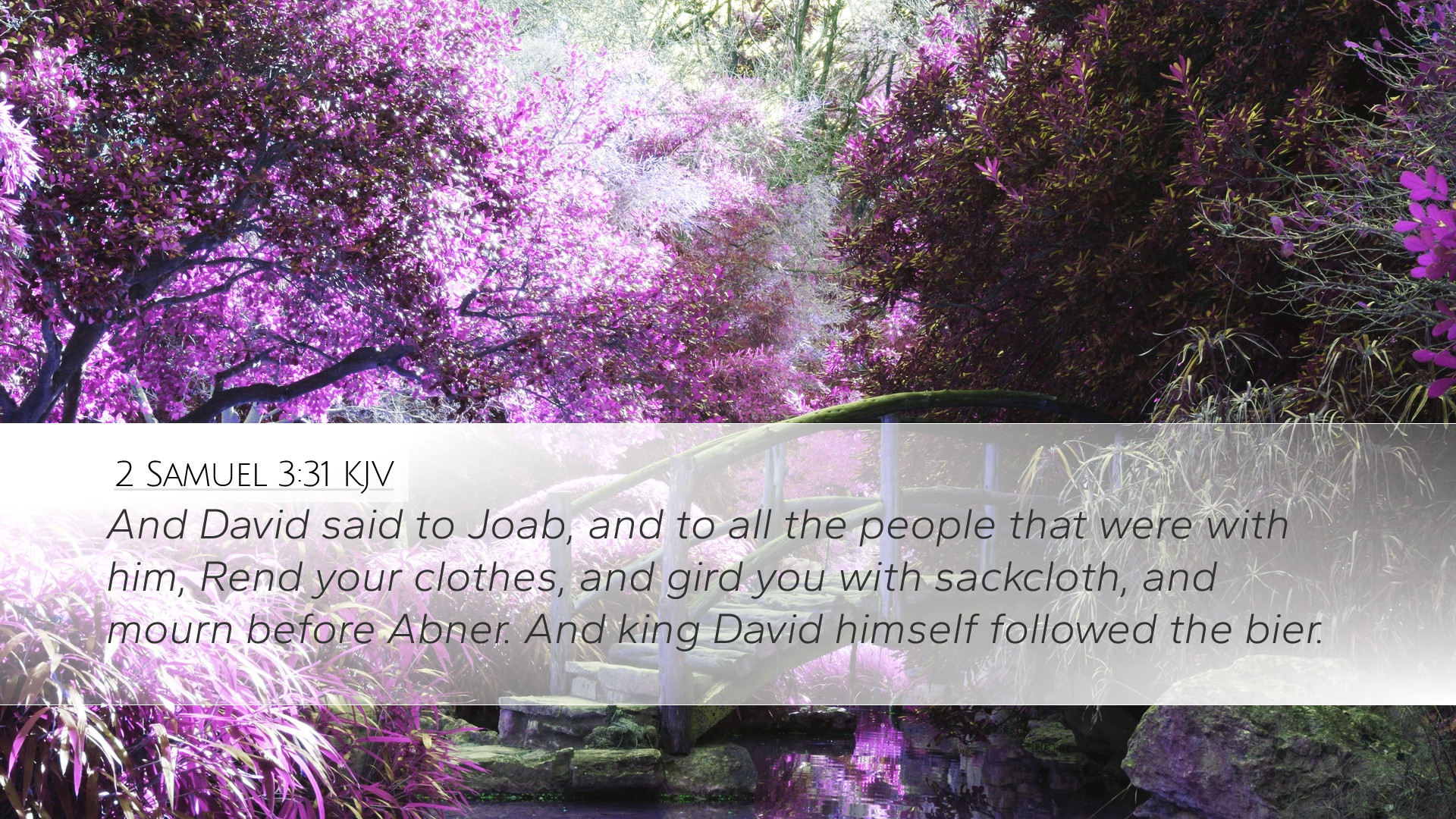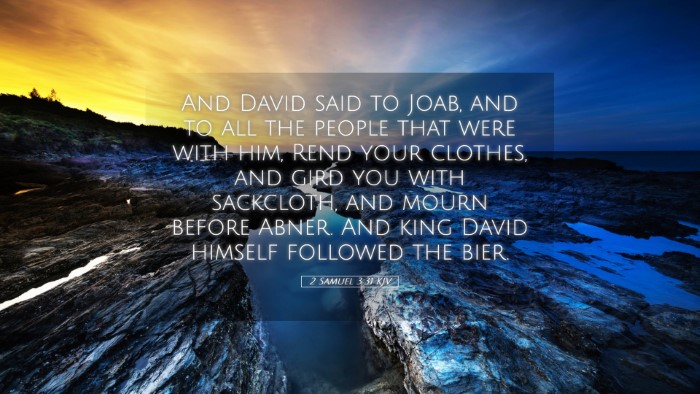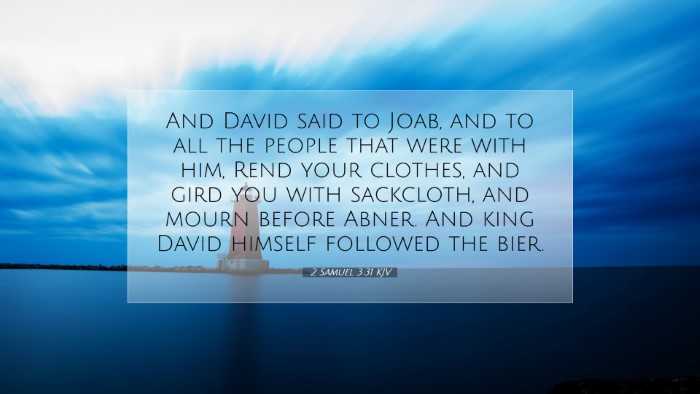Commentary on 2 Samuel 3:31
Bible Verse: "Then David said to Joab and to all the people who were with him, 'Tear your clothes and gird yourselves with sackcloth, and mourn before Abner.' And King David followed the funeral bier."
Contextual Overview
This verse occurs in the midst of a tumultuous period for Israel, marked by internal strife and the rivalry between the house of Saul and the house of David. Abner, the commander of Saul’s army, had shifted his allegiance to David, but his life was cut short by the treachery of Joab. This commentary aims to unpack the significance of David's lamentations and the lessons drawn from this poignant moment in biblical history.
David's Response to Abner's Death
1. An Expression of Grief:
David's deep sorrow over Abner's death highlights the complexities of relationships in a narrative woven with conflict and power struggles. According to Matthew Henry, David’s mourning reveals his respect for Abner, recognizing him as a significant military leader. This moment contrasts the brutal nature of Joab's act of vengeance, showcasing a compassionate and just demeanor from David.
2. The Lamentation Ritual:
David commands Joab and the others to "tear your clothes and gird yourselves with sackcloth," which reflects a traditional mourning practice in the ancient Near East. Albert Barnes elucidates that this action signifies a collective grief, emphasizing the importance of shared mourning as a corporate expression of loss. This public display of sorrow serves not only to honor Abner but also to foster unity among the people of Israel in a time of division.
Theological Implications
1. The Nature of Honor:
David's actions encourage us to consider how we approach honor and respect for others, even those who may have been adversaries. Adam Clarke points out that David's grief for Abner discourages the spirit of vengeance that Joab embodied. This illustrates the Christian imperative to show compassion and respect, transcending personal grievances.
2. The Role of Leadership:
David, as a leader, exemplifies how one should respond to loss. His behavior not only affirms his character but also sets a precedent for future leadership within Israel. David seeks to unify a fractured nation through the mourning of one who, while once an enemy, had turned ally. This demonstrates an essential trait of godly leadership: the ability to transcend personal enmity for the greater good of the people.
Historical and Cultural Insights
This verse captures the ancient customs of mourning which are fundamental to understanding the culture of the time. The tearing of clothes and wearing sackcloth symbolized deep remorse and grief, recognized universally across various cultures, as elaborated by commentators. David's adherence to these traditions reinforces the social bonds within the community and solidifies the methodology of communal mourning.
Personal Reflection and Application
1. Cultivating a Heart of Mourning:
In a modern context, this passage calls individuals to develop a spirit of empathy and mourning for the losses experienced by others. Reflecting on this can deepen our understanding of community life and foster a culture in which grief is shared collectively.
2. Recognizing the Value of Relationships:
By mournfully acknowledging Abner’s contribution despite past conflicts, David teaches us the importance of valuing relationships and acknowledging the inherent worth in others. This can inspire us to repair relationships that might seem beyond reconciliation.
Conclusion
The lament for Abner in 2 Samuel 3:31 is a profound expression of grief, leadership, and the complexity of human relationships. David’s response to the death of Abner serves as a model for modern believers to engage compassionately in times of loss and conflict resolution. For pastors, students, theologians, and Bible scholars, this verse is not just an ancient narrative, but a living lesson in how we are called to navigate our relationships with integrity, honor, and empathy.


